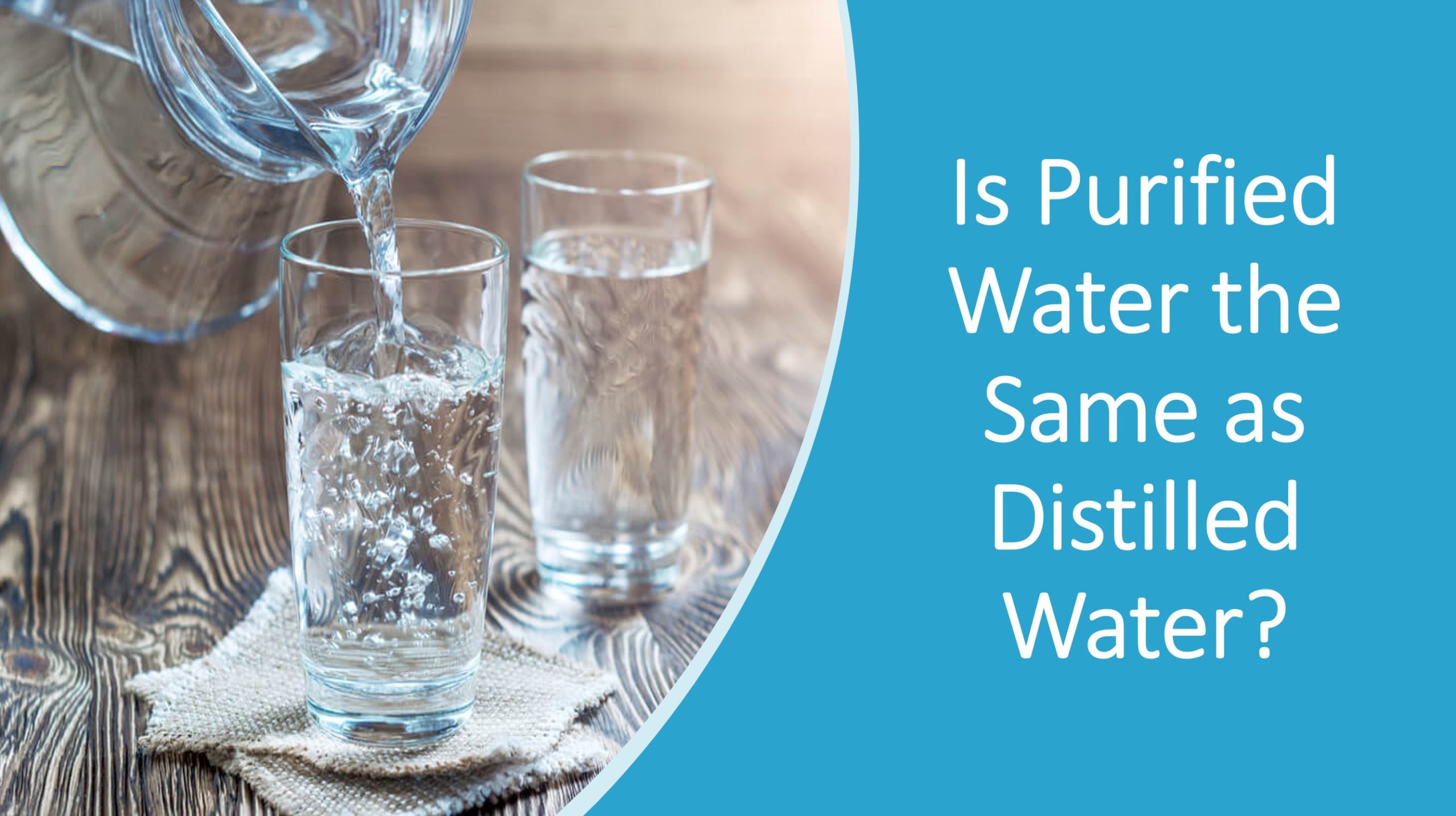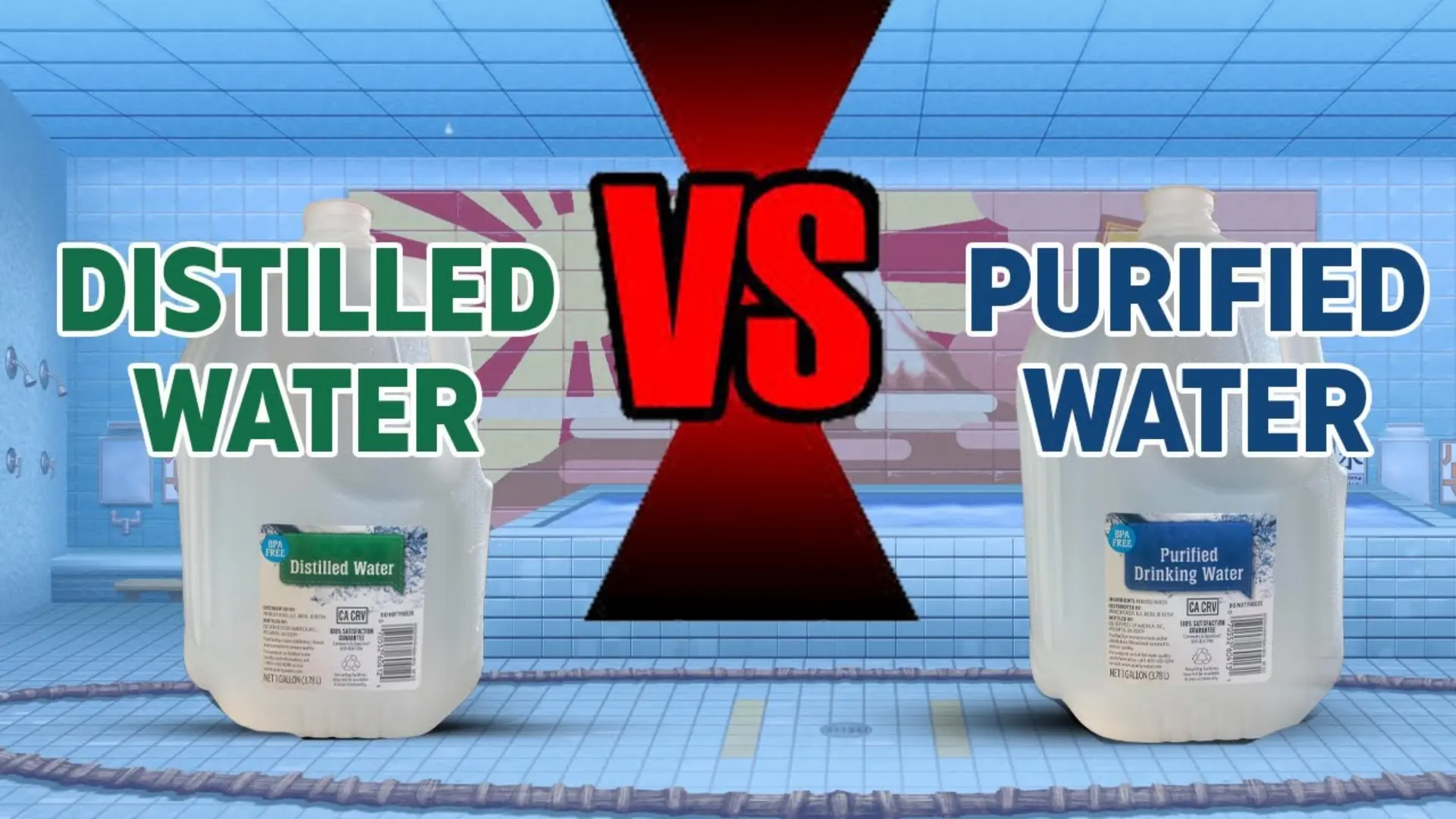Choosing Between Distilled Water Or Purified Water: What’s Best For You?
When it comes to choosing the right type of water for your daily needs, the debate between distilled water or purified water often takes center stage. Both options have unique characteristics that make them suitable for different purposes. Distilled water undergoes a process of boiling and condensation to remove impurities, while purified water is treated through various filtration methods to achieve a high level of cleanliness. Understanding the differences between these two can help you make an informed decision based on your health, lifestyle, and specific requirements.
Many people are unaware of the subtle yet significant distinctions between distilled water or purified water. While both are free from contaminants, their methods of purification result in varying mineral content and usability. For instance, distilled water is often recommended for laboratory use or in appliances like humidifiers due to its lack of minerals, whereas purified water is commonly used for drinking and cooking. This article dives deep into the nuances of both types of water, helping you determine which one aligns best with your needs.
As concerns about water quality continue to rise, it’s essential to explore the benefits and drawbacks of distilled water or purified water. From health considerations to environmental impacts, we’ll cover everything you need to know to make an educated choice. Whether you're looking for the purest water for your family or seeking the best option for specialized applications, this guide will equip you with the knowledge to navigate the distilled water vs. purified water dilemma effectively.
Read also:Exploring The Life And Legacy Of Brigitte Bardots Son
Table of Contents
- What is Distilled Water or Purified Water?
- How is Distilled Water Different from Purified Water?
- Which is Better: Distilled Water or Purified Water for Drinking?
- Can Distilled Water or Purified Water Affect Your Health?
- What are the Uses of Distilled Water or Purified Water?
- How to Choose Between Distilled Water or Purified Water?
- Environmental Impact of Distilled Water or Purified Water
- Cost Comparison: Distilled Water or Purified Water
- Frequently Asked Questions About Distilled Water or Purified Water
- Conclusion: Distilled Water or Purified Water?
What is Distilled Water or Purified Water?
Distilled water and purified water are both forms of treated water, but their processes differ significantly. Distilled water is created by boiling water to produce steam, which is then condensed back into liquid form, leaving impurities behind. This process removes nearly all contaminants, including minerals, bacteria, and chemicals. On the other hand, purified water is treated using methods like reverse osmosis, deionization, or carbon filtration to remove impurities. While both options result in clean water, their applications vary based on the presence or absence of minerals.
How is Distilled Water Different from Purified Water?
One of the key differences between distilled water and purified water lies in their mineral content. Distilled water is virtually free of minerals, making it ideal for specific uses like laboratory experiments or steam irons. Purified water, however, may retain some trace minerals depending on the purification method used. Additionally, the taste of distilled water is often described as "flat" due to the lack of minerals, whereas purified water may have a slightly better taste. Understanding these differences can help you decide which type of water suits your needs better.
Which is Better: Distilled Water or Purified Water for Drinking?
When it comes to drinking water, the choice between distilled water or purified water depends on your health goals and taste preferences. Distilled water is free from contaminants and minerals, making it a safe option for hydration. However, the absence of minerals like calcium and magnesium may not provide the same nutritional benefits as purified water. Purified water, while still highly clean, may contain trace minerals that contribute to its taste and potential health benefits. Consider your dietary needs and personal preferences when deciding between distilled water or purified water for daily consumption.
Can Distilled Water or Purified Water Affect Your Health?
Both distilled water and purified water are generally safe for consumption, but their effects on health can vary. Drinking distilled water over a long period may lead to a lack of essential minerals, as it contains none. This could potentially impact individuals who rely solely on distilled water for hydration. Purified water, on the other hand, may provide trace minerals that contribute to overall health. However, the mineral content in purified water is often minimal and should not be relied upon as a primary source of nutrients.
What are the Uses of Distilled Water or Purified Water?
Distilled water and purified water serve different purposes due to their unique properties. Distilled water is commonly used in medical equipment, laboratories, and automotive applications like car batteries and steam irons. Its lack of minerals ensures that it won’t leave residue or cause damage. Purified water is more versatile and is often used for drinking, cooking, and even in aquariums. Its balanced mineral content makes it suitable for a wider range of applications compared to distilled water.
How to Choose Between Distilled Water or Purified Water?
Choosing between distilled water or purified water depends on your intended use and personal preferences. For specialized applications like laboratory work or medical equipment, distilled water is the clear choice due to its purity. For everyday use, such as drinking or cooking, purified water is often preferred for its taste and trace mineral content. Consider the specific requirements of your task and weigh the pros and cons of each type of water before making a decision.
Read also:Hwang In Yeop Is He Married And What We Know About His Love Life
Environmental Impact of Distilled Water or Purified Water
The environmental impact of producing distilled water or purified water is an important consideration. Distillation requires significant energy to boil and condense water, making it less environmentally friendly compared to some purification methods. Purified water, especially when produced using reverse osmosis, can also have a high environmental cost due to water wastage. However, advancements in technology are making both processes more sustainable. When choosing between distilled water or purified water, consider the environmental implications and opt for eco-friendly options whenever possible.
Cost Comparison: Distilled Water or Purified Water
The cost of distilled water or purified water varies depending on the production method and availability. Distilled water is often more expensive due to the energy-intensive distillation process. Purified water, on the other hand, is generally more affordable and widely available in stores. If you’re considering a home filtration system, reverse osmosis systems for purified water may have a higher upfront cost but can save money in the long run. Evaluate your budget and usage requirements to determine which option is more cost-effective for you.
Frequently Asked Questions About Distilled Water or Purified Water
- Is distilled water or purified water better for cooking? Purified water is often preferred for cooking due to its trace mineral content and better taste.
- Can I use distilled water or purified water in my aquarium? Purified water is generally recommended for aquariums as it provides a balanced environment for aquatic life.
- Does distilled water or purified water expire? Both types of water can last indefinitely if stored properly in a clean, sealed container.
- Is distilled water or purified water safe for babies? Both are safe for babies, but purified water is often preferred for formula preparation due to its mineral content.
Conclusion: Distilled Water or Purified Water?
In conclusion, the choice between distilled water or purified water ultimately depends on your specific needs and preferences. Distilled water is ideal for applications requiring absolute purity, such as laboratory work or medical equipment. Purified water, with its trace minerals and better taste, is more versatile and suitable for everyday use like drinking and cooking. By understanding the differences and benefits of each type of water, you can make an informed decision that aligns with your lifestyle and goals. Whether you prioritize purity, taste, or cost-effectiveness, both distilled water and purified water offer valuable options for maintaining a healthy and hydrated life.
Exploring The Benefits Of Wave Power: A Sustainable Energy Solution
Defaults Fortnite: A Comprehensive Guide To Mastering The Basics
How Do You Spell Confidence? Unlocking The Power Of Self-Assurance

Distilled Water vs Purified Water Comparison Are They The Same?

Purified vs Distilled Water Which One Is Better to Drink?